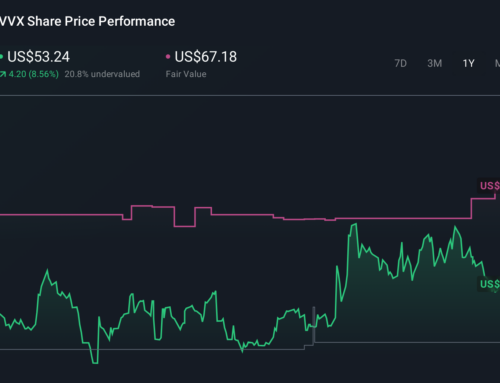Tariff Crisis: Israel’s Cannabis Industry Torn in Two as 165% Import Tax Hangs in the Bala
April 25, 2025
Israel’s cannabis industry is engaged in a heated and divisive showdown as a proposed 165% tax on Canadian cannabis imports, on which a large portion of the industry and many patients rely, hangs in the balance.
Earlier this month, Israel’s Ministry of Economy, spearheaded by the Minister of Economy and Industry Nir Barkat, announced that it planned to go ahead with the proposed levies against Canadian cannabis imports, amid ongoing accusations of ‘product dumping’.
This has caused chaos in the market. Pro-import businesses have launched a well-funded campaign to petition the high court to block the tax, and the Ministry of Health and the Competition Authority have staunchly opposed the move.
Meanwhile, the Manufacturers Association and Cannabis Farmers Forum have both offered unwavering support for the tariff, and the future of the potentially transformative financial measures is now being played out on the political stage.
Despite the gaping divide, both sides largely agree that, at least in the short term, this tariff will significantly increase prices for patients.
The tax
Last year, Israel imported some 24.5 tonnes of cannabis, a dramatic increase on the 17.2 tonnes imported in the prior year, and an all-time record according to Israel’s Cannabis Magazine.
While the country’s domestic market is well developed and its cultivators are highly capable, according to Prohibition Partners, around a third of all products are imported from abroad.
Around 80% of these imports come from Canada, with the latest figures suggesting around 20 tonnes were imported from the market in 2024, representing roughly a quarter of the total market.
In early 2024, the Ministry of Economy launched an investigation into its domestic cannabis market, following numerous complaints from local producers that they were struggling to compete on price with Canadian imports.
The investigation was launched in January, and a preliminary decision was published in July revealing plans to impose severe tariffs on Canadian imports.
A final 126-page report was then published on November 10, proposing triple-digit levies for the majority of Canadian importers. Then, on April 11, Barkat announced that he planned to impose 165% tariffs on all imports.
A divided market
Numerous government agencies and industry bodies voiced their opposition to the tax, including the Association of Chambers of Commerce, the Ministry of Health, and the Competition Authority.
According to the Association of Chambers of Commerce, the tariff will hit patients most harshly, while impacting local cultivators and Israeli cannabis businesses negatively, and is based on ‘insufficient and outdated’ facts.
The Ministry of Health, meanwhile, determined that the move would raise prices for patients and would drive people to the black market, while the Competition Authority believes the recommendation is based on an incorrect analysis.
This position is shared by the Canadian Cannabis Council (C3) which said it was impossible to ‘acertain how any of these decisions were made, adding that there were major concerns over inconsistent comparisons between retail, wholesale, and bulk prices.
On the other side of the heated debate, the Manufacturers Association, which largely represents the interests of local cannabis producers, argued that the ‘quantities of cannabis imported from Canada are imported under unfair trade conditions and at dumping prices, and have seriously damaged the medical cannabis industry in Israel’.
In tandem, the Cannabis Farmers Forum launched a campaign urging the government to push forward with the bill, arguing that Canadian imported product was never intended for medical use, and is the waste product from its recreational market.
This, according to the group, has driven cannabis prices up, seeing patients pay high prices for imported products, and leaving local farmers facing bankruptcy.
Israel’s major cannabis importers, including Cronos, Aurora, IM Cannabis and Decibel, have argued that the tax could push costs up for Israeli patients by up to three times the current price per gram.
In turn, this is likely to mean imports cease altogether, and the industry is faced with a supply shortage, and the medical market could shrink in general, hurting traders and pharmacies alike.
While the tariff’s supporters argue Israeli cultivation operations are currently operating at around 40% capacity and could ramp up operations to meet demand, its opponents point out that despite representing around a quarter of available product, Canadian cannabis remains far more popular with patients, with around 30 of the top 50 strains coming from Canada.
Furthermore, they argue that before imports were allowed in 2020, Israeli companies took advantage of the monopoly and raised prices significantly, a trend expected to be repeated should to tax be imposed.
Political turmoil
The decision for now remains in limbo. When Barkat announced plans to push ahead with the tax, its future was then placed in the hands of Finance Minister, Bezalel Smotrich, who had 15 days (until April 26) to veto the decision, before it was automatically passed to the Knesset Finance Committee for discussion.
On Sunday, April 20, Smotrich voted to oppose the levy, attacking Barkat for making the decision on the eve of Passover, a period when state employees are on vacation.
“I was not able to carry out all the work processes required for me to formulate my position in the required depth,” he said in a letter to Barkat.
Smotrich said that given the major ‘implications for prices, competition and patients’, he intended to ‘delve deeper into the issue’ and would inform Barkat if his decision had changed upon further research, suggesting that, given the public holiday, he did not intend to conform to the 15-day limit.
As such, while the bill is currently vetoed, there is every chance the decision could be changed once again in the coming days.
In another significant turn of events, Barkat said earlier this week (Tuesday, April 22) in a letter responding to Smotrich, that he effectively intends to ignore his veto.
He wrote: “Since I did not see in your letter a reasoned explanation regarding the impact of the levy on Israel’s economic goals, I cannot see your letter as one that opposes the imposition of the levy, and if your reasoned refusal is not accepted, in accordance with your authority under the Trade Levy Law, I hereby inform you that I cannot see this letter as an opposition.”
For now, with the debate reaching a boiling point throughout the government and industry, the fate of the levy, and indeed many Israeli cannabis businesses, hangs in the balance.
Search
RECENT PRESS RELEASES
Related Post




